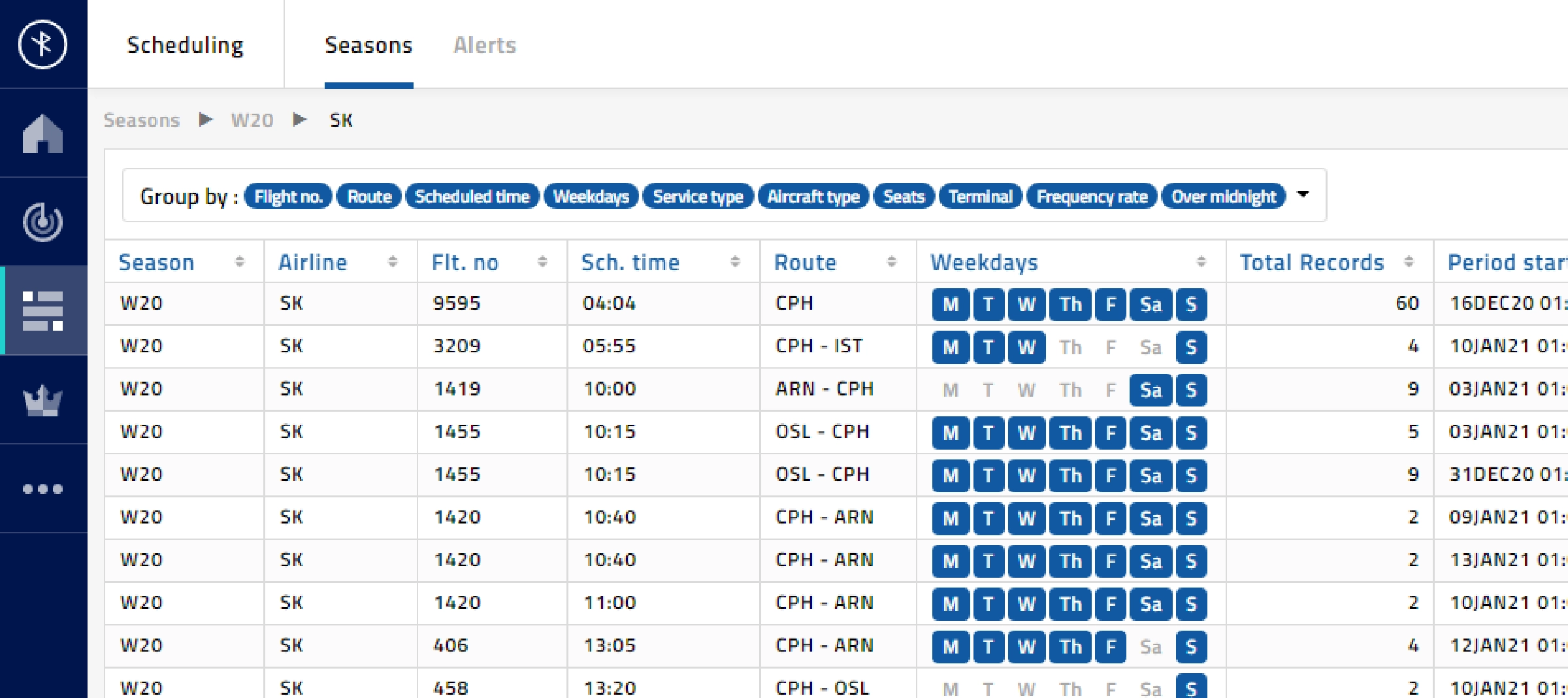Flight Schedule Management
Planning of airport activities, and ultimately passenger forecasting, is key for raising efficiency, improving safety, reducing emissions, and controlling operational cost. The AIRHART Flight Schedule Management module allows for maximum resource utilisation across multiple planning scenarios.
Key Functionality
The Flight Schedule Management module enables smooth processing of flight schedules, making smarter schedule assessment and activation possible.
- Utilise a range of tools for assessment and planning of season flight schedules, prior to publication and distribution to all relevant parties.
- Compare schedules to determine the quality and reliability of each season; uncovering insights surrounding how one season differs from the previous season, or the season before that.
- Import and handle seasonal flight schedules from multiple sources in various formats.
- Edit the data directly in the user interface or define automated data conversions, allowing for fast conversion of multiple schedule entries.
- Automated error handling ensures high data quality.

Benefits
The Flight Schedule Management module provides business value from day one by:
- A single source of truth regarding future schedules.
- Minimise back-office administration through automatic data capture.
- Plan ahead, reduce risks and make better business and operational decisions.
- Strengthen seasonal resource allocation and bottleneck detection.
- Improve control and management efficiency in airport operations, Using "what if" scenario simulations for operational flight planning, scheduling, and management processes.
- Better predictability and turnaround efficiency for the airport and improved customer satisfaction.
Future Perspectives
The Flight Schedule Management module is developed continuously, with new features added in each development cycle.
The Schedule Maturity Score is one such feature. Based on an AI predicted maturity score, the system can automatically and continuously activate flight records allowing for early planning.
When the planning process for a new season begins, airports continuously receive schedule entries – as the process proceeds, the plan is updated regularly with changes, additions, and cancellations. Only once the plan stabilises it can be activated, because once it is activated, airport operations are planned according to the capacity required based on the activated plan.
Activating a high-quality seasonal plan, as early as possible, is a strong advantage for airports — allowing them to plan operations ahead of time. However, before activating a plan, the airport must determine if the plan is mature enough for activation. A plan is considered mature once data is reliable. This is where the AIRHART Schedule Maturity Score comes in.
The AIRHART system calculates a “maturity score” for each entry, indicating how reliable the data entries are. The score is calculated using artificial intelligence (AI) based on a combination of different parameters and data sources. For example:
- Historic data – It is likely that a plan is reliable once it is relatively similar to previous seasons.
- Update frequency – It is likely that the plan is reliable once the frequency of updates is low and stabilised.
The score is expressed as a percentage and can be aggregated on route, airline and overall season level too.
